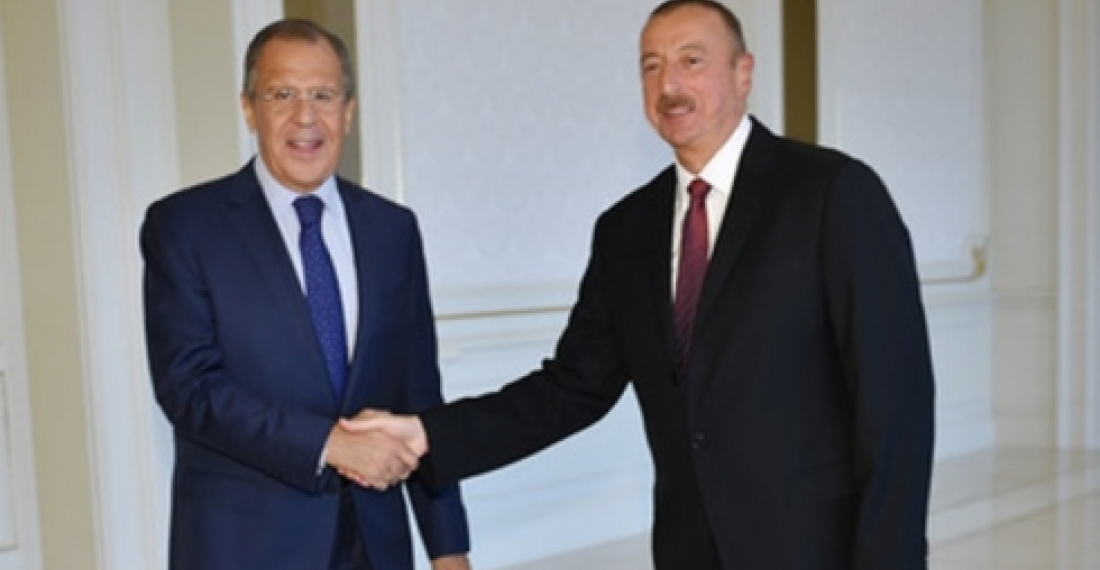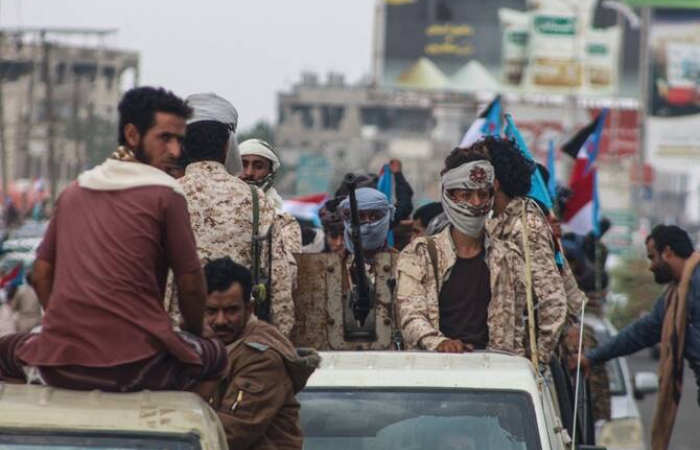This is an op-ed prepared for commonspace.eu by Dennis Sammut, Director LINKS (Dialogue, Analysis and Research).
On Monday, 1 September Russia took over the chairmanship of the United Nations Security Council. It was an important day for Russian diplomacy, with Syria, Ukraine, Yemen, and the spread of ISIS influence in the Middle East, high on the Council's agenda. Foreign Minister Sergey Lavrov appropriately started the day with an intellectual exercise, addressing the students of the famous MGIMO University of International Affairs in Moscow, where he talked on his favourite topic - the new relationship between Russia and the United States. Lavrov than jumped on a plane and travelled to Baku.
The visit to Azerbaijan was announced only on Friday, and according to sources in Moscow had only been decided a day earlier. Very little information was given ahead of the visit, except that Lavrov would be discussing bilateral relations and the Karabakh conflict. The usual media circus that often travels with Lavrov were told that their services where not needed on this occasion. The pro government media in Azerbaijan got excited at this stage, wheeling out the usual suspects to comment on the visit. Like everybody else they were not in the know, so they speculated rather than informed.
Lavrov eventually arrived in Baku on Monday evening and met President Aliev. There were the usual photo-calls, and Aliev made the customary welcome, emphasising that Russia and Azerbaijan had found a good way of working together and were united in a "strategic" relationship. Aliev did not fail to remind his guest that President Putin had honoured Baku with his presence at the European Games in July, and of the importance of this.
Very little of substance has emerged as to the purpose of the visit. However this was clearly not a protocol visit. The timing and nature of the visit suggests urgency. Lavrov likes grandstanding. His favourite moments are one-to-one garden chats with the US Secretary of State. That is when Russia can show that it is still an equal with its old adversary. Day trips to the Caucasus, especially at such a time, need to have a purpose, and this one clearly did.
For some time, and especially in the last two years, Moscow has been focused on changing the dynamic of its relationship with Azerbaijan which it sees as the ultimate prize in its attempt to reassert its supremacy in the former soviet space. Russian President Vladimir Putin has pulled all the stops to achieve Russia's objectives. Putin's visit to the Baku Games was not simply to support the Russian Olympic team, but the climax of a weekly stream of visitors from Russia, all pushing the same agenda. If charm offensives could be translated into diplomatic success this one would have been done and dusted a long time ago. Yet in Russia's message there has always also been a hint of threat.
Putin's strategy has been to drive a wedge between Baku and the west. The timing was opportune. Azerbaijan's relations with the west took a sharp turn for the worse since October 2013 because of issues related to governance and human rights. Baku has convinced itself that western capitals are planning regime change. By and large this has been the product of paranoia, but it has also been fed by a particularly nasty, and sometimes unjustified, criticism of Azerbaijan in western media. In the past Moscow has from time to time gifted Baku intelligence dossiers on anti-government activity, collected by the FSB. It is understood that recently this has also included information of contacts between opposition representatives and western personalities. This has kept Moscow in Baku's good books despite its perceived pro-Armenian position.
Yet surprisingly Russia has not been able to capitalise on its charm offensive as much as it expected. The first reason is that the "Party of Russia" in Azerbaijan is strong, but not strong enough. Headed by Ramiz Mehtiyev, the influential head of the Presidential Administration, it has deep roots within the entire power structure, but it has its blind spots too. The political system in Azerbaijan today remains pretty much as it was designed by Heidar Aliev, former Communist boss, former President and father of the current President. Heidar Aliev had an instinctive mistrust of Moscow. He had little time for pan-Turkic nationalism too, but was wary of the political machinations in Moscow and understood the need to balance between these two poles, adding the west as a third pole for good measure. As a result some elements of the Azerbaijani state harbour deep-rooted distrust of Moscow and resist it as much as they can. Ramiz Mehtiyev himself is more into managing Russian expectations than simply succumbing to Russia's will. Indeed for a while his role was pivotal for ensuring the country's independence. But that was before Mr Putin decided to finish with all the nonsense and seek clarity. Now the "party of Russia" is being asked to deliver.
Baku is also aware that Moscow is not averse to mischief making if it suits its purpose. If Moscow sets its mind on regime change in Baku the nature of the threat will be considerably higher than all the noise about the human rights shenanigans in Washington and Brussels.
Last, but not least, many Azerbaijanis still consider Russia as a former colonial power that suffocated their nation's identity when it could. A big chunk of Azerbaijan's population does not want their government to compromise their country's independence to Russian hegemony.
What does Russia want from Azerbaijan?
So what does Russia want from Azerbaijan? Putting it briefly and simply Russia wants Azerbaijan to fall in line. This means distancing itself from the west on foreign policy and military and security issues. It does not mean yet breaking with the west on economic /energy issues, because they understand that it would be difficult for the Azerbaijanis to do that. So Azerbaijan is not being forced to join the Eurasia Economic Union, at least not yet. There have been reports in the Russian media that Russia will base a new sophisticated military radar facility in Azerbaijan as from 2017. The Azerbaijani government, which usually prefers to nip in the bud such speculation, has been eerily silent on this, which suggests that the matter is still under discussion
Russia also wants to ensure that there is no Azerbaijani adventurism in the context of the Karabakh conflict. The daily violations of the cease fire in the Karabakh conflict zone are not in Moscow's interest. The current deployment of a large Turkish Air Force presence in Azerbaijan for extended military drills is also not to Moscow's liking. However Russia knows that to achieve Azerbaijani acquiescence it must give something in return. This at the moment is its biggest challenge. So far that has taken the form of supplying Azerbaijan with sophisticated and costly armaments, for which Azerbaijan has paid in cash. Lavrov was reported to have taken to Baku an invitation for "ArmsExpo 2015", Russia's largest arms export fair - an odd gesture from the representative of a country that is one of the co-Chair of OSCE Minsk Process that is supposed to bring the parties in the Karabakh conflict to peace.
For some time there has been talk of a "new" Russian initiative, but Baku has been playing hard to get. Any new initiative that does not involve an early transfer of at least some symbolic territory from Armenian occupation back to Azerbaijan is unlikely to be acceptable. Moscow has been pushing Yerevan on this for some time. If Moscow has got a sign that Yerevan is at last ready to budge, that would have justified a day trip to Baku by Mr Lavrov.
So it very likely that for his day trip to Baku Mr Lavrov packed in his suitcase together with a clean shirt, a carrot and a stick. In due course we will know how he used them, and with what results.
source: This op-ed was written for commonspace.eu by Dennis Sammut, Director of LINKS (Dialogue, Analysis and Research) www.dennisammut.info
Photo: President Aliev of Azerbaijan welcoming Russian Foreign Minister Sergey Lavrov in Baku on Tuesday, 1 September 2015 (picture courtesy of the Press Service of the President of Azerbaijan)






